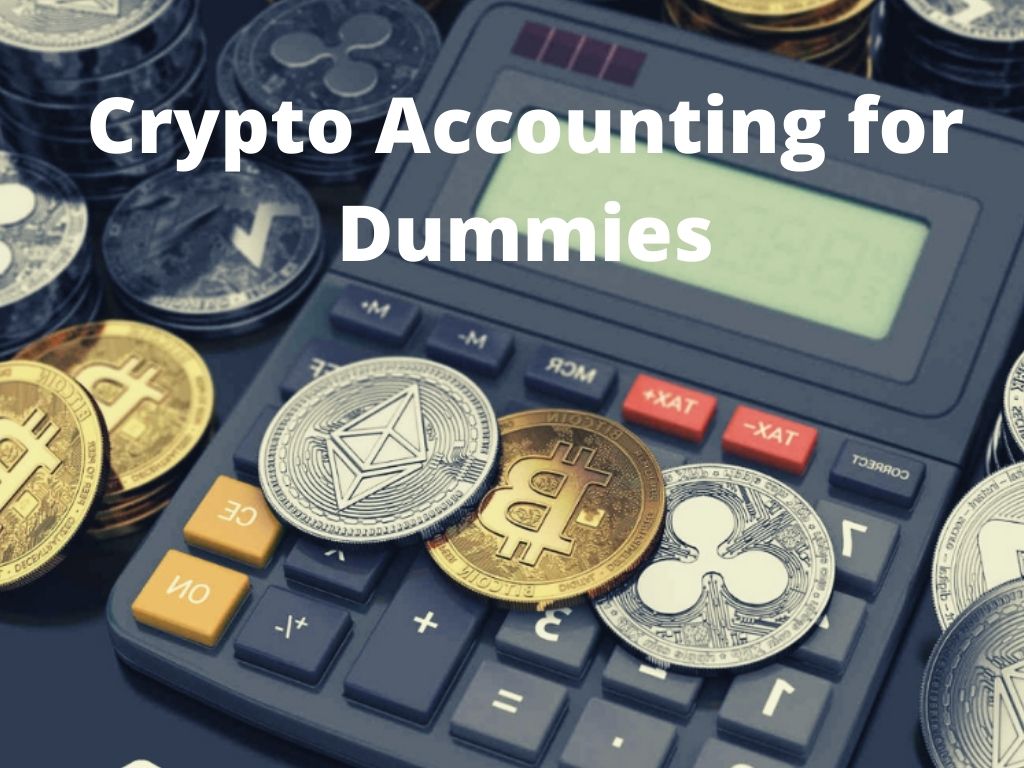The old saying says that only two things are certain in life – death and taxes. The death part is pretty straightforward. However, tax return preparation can get very complicated, especially when it comes to crypto tax accounting.
There are many perplexing questions in a crypto trader’s everyday life. Should I buy the dip? When to sell my Ethereum? Who owns the most Bitcoin in the world? Will Satoshi Nakamoto move his coins? However, the question that makes every investor cringe is definitely “How much taxes do I owe?” For anyone with acid reflux at the very thought of the matter, this is a quick crypto accounting for dummies guide.
Cryptocurrency is on the rise as an appealing alternative payment method.
In the last several years, cryptocurrency has experienced a meteoric rise in popularity. People are drawn to its decentralized nature and how it can be used as an alternative payment method for goods or services, but investing in cryptocurrency is also commonly compared to trading stocks. Regardless of your level of experience with crypto or whether you have accepted/paid using them, understanding the tax implications that accompany virtual currencies is paramount and should not be overlooked.
Cryptocurrencies are revolutionizing the way we think about online payments – by introducing built-in security features. Through specialized computer code and a public, distributed digital ledger known as the blockchain, transactions remain encrypted and only those who meet all network requirements can approve new entries. A vast number of cryptocurrencies exist beyond Bitcoin or Ethereum which use this modern payment method to keep information safe while providing users with plenty of options in their financial decisions.
How is crypto taxed?
Generally speaking, the Internal Revenue Service (IRS) treats cryptocurrencies as ‘property’ for tax purposes. That means that any gains or losses incurred from buying, selling, or trading in cryptocurrencies are taxable events. This means that any income you earn from cryptocurrency must be reported as ordinary income on your tax return and potentially subject to self-employment taxes if applicable.
Crypto transactions in non-retirement accounts require careful consideration of taxes; the duration you held onto your digital assets can mean short or long-term gains and losses. Make sure to research how much tax liability will factor into any crypto exchange!
How to Manage Accounting Crypto?
Cryptocurrency asset profits can either be taxed as capital gain or income. Profit obtained through crypto disposition will be subject to capital gains tax, while income tax applies to assets acquired through mining, staking, lending, payment and airdrops.
Please note that only the profits obtained will be taxed as unrealized gains are not taxable. For example, you purchase Bitcoin for US$30,000 and it goes up to US$60,000. However, if you sell it after it goes back down to US$40,000, you owe taxes for only US$10,000 of profit.
This profit will fall under long or short term capital gains, depending on the time between the acquisition and selling events.
- Short term capital gains (STCG) are those which result from asset disposition within a year of its purchase. Typically, STCG is taxed at ordinary tax rates. These rates depend on the overall taxable revenue and can be as low as 10% or as high as 37%. For example, all trading bot transactions are classified as STCGs.
- Long term capital gains (LTCG) result from investments that yield returns over a time period greater than one year. Long term investments are incentivized by lower taxes on LTCG. For example, if STCG tax on an investment profit is 30-37%, LTCG on the same profit could be 20% and similarly, if STCG tax 10%, LTCG could be 0.
Unlike with real estate investments, you are not able to defer or avoid paying taxes by reinvesting into a similar asset. The taxable event is triggered upon selling the coin, not cashing out your proceeds. Therefore, keeping your profit in a stablecoin or rolling it over into a new trade will not free you from paying taxes on it.
FIFO, LIFO, HIFO: Choosing a Crypto Accounting Method
Aside from opting for the LTCG type of investing, a choice of the accounting method could also reduce the tax bill. A typical investor buys and sells assets fractionally, which is why, there are three methods to choose from:
- FIFO – First-in-first-out
- LIFO – Last-in-first-out
- HIFO – Highest-in-first-out
Even though LIFO and HIFO can lead to significant savings, most investors opt for the FIFO method because it is considered the most conservative of the three. HIFO and LIFO can only be used when the investor is in possession of detailed asset transaction records. Switching between the accounting methods from year to year is allowed, however, could lead to errors and consequently red flags to the IRS.
Gathering the Paperwork
Any HODL type of an investor that trades infrequently can keep track of their transactions in a spreadsheet, however, all trading platforms are able to deliver a .csv file of all recorded transactions. Please note that keeping track of trading losses is just as important since they can be filed as deductions.
Trading platforms under the US jurisdiction, like Coinbase or Robinhood, are obliged to send out an annual 1099-B form containing all data required to plug into the tax accounting software. However, keep in mind that you are not the only one receiving this information. If your account is compliant with the US rules and regulations then the IRS will also be getting a copy of your crypto tax info.
In some instances trading platforms do not have sufficient insight into all of the investor’s transactions. This typically happens when the asset is being transferred between the platforms, or from and onto an external wallet. According to Coinbase, this affects two thirds of its users. The solution to this problem, that does not involve intensive manual labor, either lies in having a single go to platform for asset disposition or pulling all of the transactions together by using crypto accounting software.
Time and Sanity Saving Crypto Accounting Tools
Crypto accounting software can save hours of data crunching time. For example, in CryptoTrader.Tax you start off by pulling in trade data from all DeFi, exchanges and wallets into it via API imports or .csv files.
The software then automatically works out the cost basis and fiat value for each of those transactions by leveraging historical price data.
The next step is to enter any mining and staking rewards, airdrops, gifts, lending or any additional crypto income.
Finally, this software presents you with tax reports including: Short and Long Term Gains Report, Audit Trail Report, Tax Loss Harvesting Report and IRS Form 8949, which is required to be attached to the tax return in the US.
Certain companies offer portfolio tracking, exports to major tax filing softwares and even live support, in case you prefer an accountant going over the report.
Some of the best crypto accounting tools are:
- Koinly
- CryptoTrader.Tax
- Bear.Tax
- Accointing
- Tokentax.co
How to Handle Crypto Mining Accounting?
The miners are obliged to pay taxes on the coins’ fair market value upon receiving them. This is why it is crucial to keep detailed records of mining gains’ time and market value data for accounting purposes. Mining earnings are classified as income coming from self-employment and the rates of taxation can vary from 10% up to 37%. However, reporting mined earnings will differ greatly depending on whether you are reporting them as a hobbyist or a business.
Statistics show that about half of the mining income accounts for the expenses of obtaining and running the mining rigs. Therefore, it is only logical that certain deductions are available for mining, however, only mining businesses are eligible for them, not individual hobbyists. These deductions can include: equipment purchase or repair price, power expenses and space rental costs.
Accounting for crypto mining includes another important taxable event, which is coin selling. Reporting coin sale is separate from coin mining, nonetheless, coin mining price does influence tax of coin sale revenue. When the selling price of a coin exceeds the coin’s price at the time of mining, then the miner has obtained capital gain on this coin. Therefore, rules of capital gain declaration apply here. Inversely, when the value of the coin decreases from the time of mining to selling, the miner has encountered a capital loss and should be filed as such.
When it comes to accounting crypto gains one could hire an accountant who’s focusing on digital assets, however, they can be quite pricey. For those making low to moderate gains it is best to gather up the asset disposition data and pick a crypto accounting software that works best for you. After you’re done you’ll sleep much better knowing that you won’t get Uncle Sam knocking on your door.


